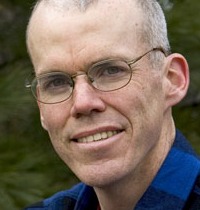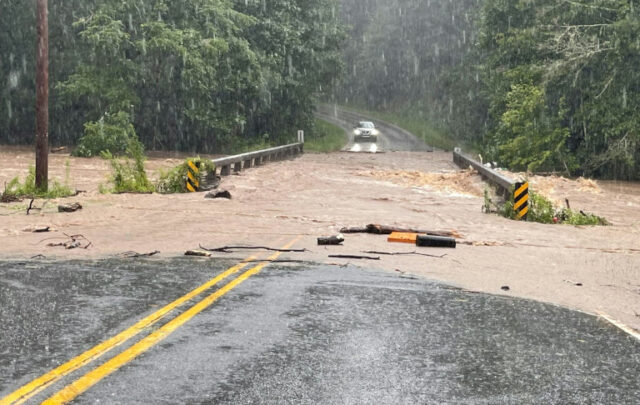HSBC Bank—Europe’s biggest by total assets—announced today they would no longer provide financing for new oil and gas fields. HSBC is not a particularly virtuous enterprise—it began in Hong Kong in 1865 with an early specialty in the opium trade; earlier this year it was censured for lying about its climate change efforts in its ads; in between there’s been every flavor of scandal that big-time capitalism can produce. And even this step is far from sufficient—they’re apparently still willing to finance new infrastructure like LNG terminals. But the activists who have been pushing them for years to take this step have won the world a huge victory.
That’s mostly because the pledge sets a new baseline that we can use to make other banks sweat. Especially the four big American banks—Chase, Citi, Wells-Fargo, and Bank of America—that are also the four biggest lenders to the fossil fuel industry. They lost a lot of cover today; it’s no longer possible for them to pretend that this kind of lending is business as usual. Scientists have said continued fossil fuel expansion will break the back of the climate system; the International Energy Agency said this kind of financing had to stop in 2021 if we were to meet the Paris climate targets; and now one of the brotherhood of global megabanks has broken ranks and gone along.
We will use that win for all its worth as we pressure those rogue American banks. As many of you know, a coalition of 19 groups (and counting) has a big day of action planned for Tuesday March 21 (32123!); we’ll be inside and outside branches of those four banks across America, cutting up credit cards, sitting down in lobbies, and in general trying to make people understand that for any American with more than $125,000 in the mainstream banking system, it’s likely producing more carbon than all the actions of their daily life. We want them to cease lending for the expansion of the fossil fuel enterprise; we will be weaning ourselves off fossil fuels for some years, so normal banking arrangements are okay. But it’s truly insane to keep growing the size of the hydrocarbon empire.
The fossil fuel industry can see this threat coming; that’s why they’ve unleashed the treasurers of red states to threaten the banks with the loss of their business if they take this step. Happily, blue city and state treasurers have more money, and they’re rising to the challenge. (Read this thread from New York City’s comptroller Brad Lander to get a sense of their rising ire). I can tell simply by the outpouring of vitriol from climate deniers on Twitter today that HSBC touched a nerve—in Elon’s new world, one gent respondeded to my sharing of an article with the news in these immortal words: “Blood is on your hands super stupid syphilletic gang fuck reject.”
But the real anger is doubtless in the C-suites of those big four American banks. I remember years ago, early in the fossil-fuel divestment campaign, when I was sitting with the president of a big college (along the Charles, and ivied). I started listing the names of the noble but small colleges that had acted on principle early on to divest, and he listened for a minute and then hissed “you haven’t gotten a single big research university.” Within the next few years Oxford, Cambridge, the University of California, the University of Michigan, Columbia and so on had divested; it was only a matter of time before that ivied institution along the Charles followed suit. That’s where the big banks find themselves today. Amalgamated Bank and Beneficial State deserve huge credit for doing the right thing, but they’re not fatcats. HSBC undeniably is. It’s got $4 billion in assets, it’s #13 in the world in fossil fuel lending. It’s in the club.
It doesn’t mean the fight will be easy—these banks are the capital in capitalism. But it means it’s possible if we push.
+Robert Brulle and Christian Downie have an absolutely crucial new paper showing just what vast sums the fossil fuel industry spends on lobbying and advertising. Their trade associations alone have plowed $3.4 billion into the job in recent years. As Brulle said to me this afternoon, “it is a testament to the climate movement that it’s had any successes.”
+The highly respected science journal Nature published an important commentary this week on “degrowth,” which its authors defined like this:
Wealthy economies should abandon growth of gross domestic product (GDP) as a goal, scale down destructive and unnecessary forms of production to reduce energy and material use, and focus economic activity around securing human needs and well-being. This approach, which has gained traction in recent years, can enable rapid decarbonization and stop ecological breakdown while improving social outcomes. It frees up energy and materials for low- and middle-income countries in which growth might still be needed for development. Degrowth is a purposeful strategy to stabilize economies and achieve social and ecological goals, unlike recession, which is chaotic and socially destabilizing and occurs when growth-dependent economies fail to grow.
I think it’s an inelegant name for an important set of ideas
+Kansans are trying to clean up the biggest oil spill in the history of the Keystone pipeline. Thank heaven we managed to block the even larger KXL.
+The interesting breakthrough in fusion energy—which won’t bear commercial fruit for many many years—is an apt reminder that we have a large fusion reactor 93 million miles up in the air.
This is a fighting newsletter. If you can afford it without hardship, you can help the fight by paying the modest subscription fee. If not, no worries, keep reading!
Teaser photo credit: The HSBC Main Building in 1901 in Hong Kong, the headquarters of the Hong Kong and Shanghai Banking Corporation from 1886 to 1933 for its Hong Kong operation. By Template:Henry Rue – http://www.facebook.com/oldhkphoto, Public Domain, https://commons.wikimedia.org/w/index.php?curid=27282480






